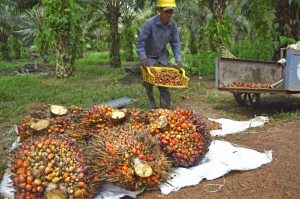By Kenneth Afor
India, the world’s largest buyer of palm oil is to impose more heavy fines on imported palm oil products in order to increase local production and reduce the country’s dependence of the foreign edible oil.

This move by the government would definitely make consumers in the country to rely on domestic production of the edible oil which apparently there is a huge deficit to that rather than opting for imported ones.
Similarly, as India being the world’s largest buyer of palm oil with population of about 1.354 billion people taking a larger chunk of global export, the 30 billion dollar global industry of palm oil shipment is likely to shrink thereby causing a huge distortion in the market.
This new move by the Narendra Modi’s government has added more injuries to the trade spat between Malaysia and Indonesia; top exporters of palm oil to India.
However, on Wednesday, the Malaysian government assures that the current trade dispute with India may not be prolonged as perceived but with this new policy from India both top exporting countries will have to strategize and hunt for prospective buyers to in order to meet up with deficit as soon as India’s fine is enacted.
India’s total consumption of refined palm oil products annually is put at 25 million tonnes and import is put at 15 million tonnes, to bridge this huge deficit the government said it has put in place necessary measures to rev up domestic production to meet the needs of the teeming population.
One of such measures would be boosting the country’s local oilseed production to 45 million tonnes by 2022 to 2023 from the initial 31 million tonnes as of September 30, 2019.
The government is also trying to double palm oil farmer’s income-based on a recommendation set up to revive the country’s palm oil industry.
Meanwhile, the world’s second-largest exporter of palm oil, Malaysia witnessed a fall of the edible oil in September, recording 0.1 percent year-on-year (y-o-y) as against last year’s September slower than the 0.8% contraction was seen in the previous month. This decline may further continue in the coming months in the palm oil global industry.








